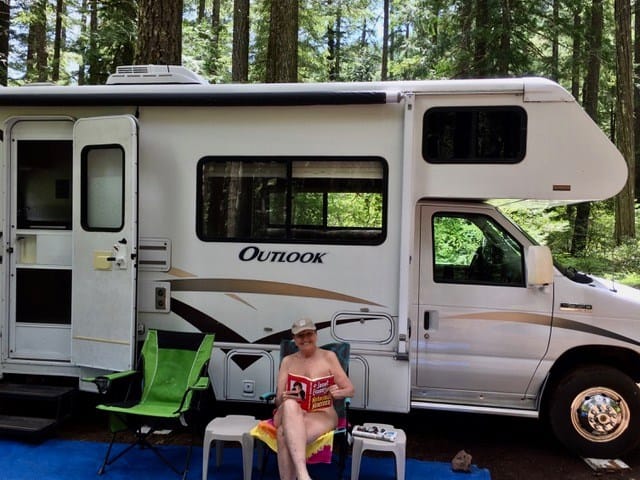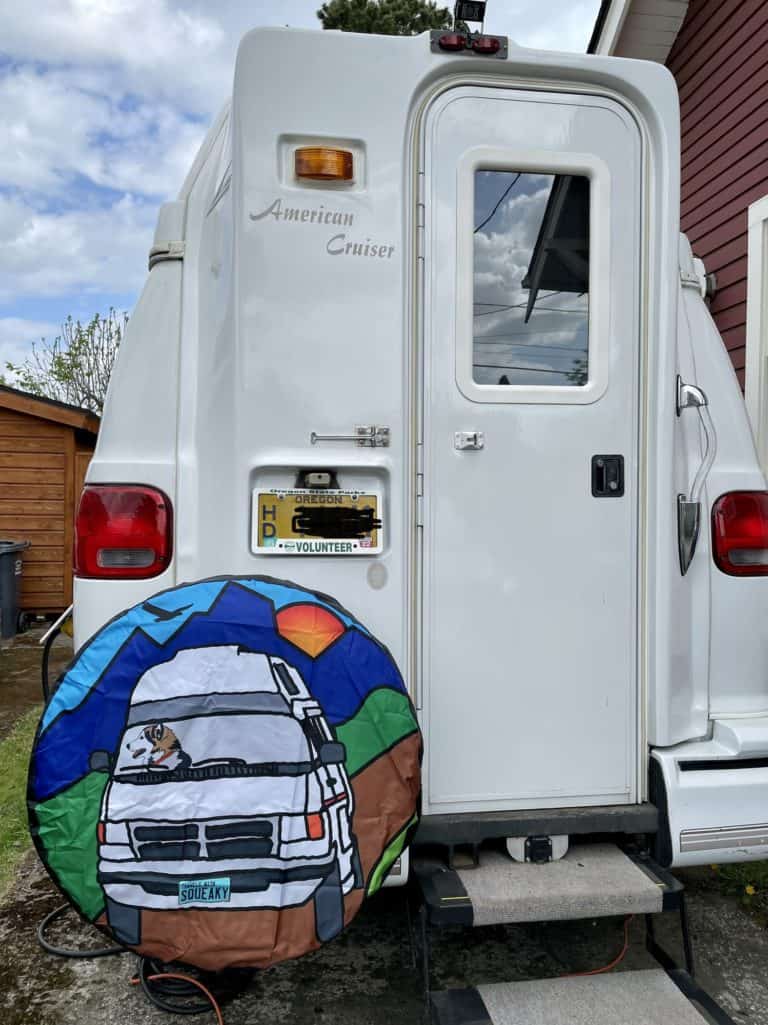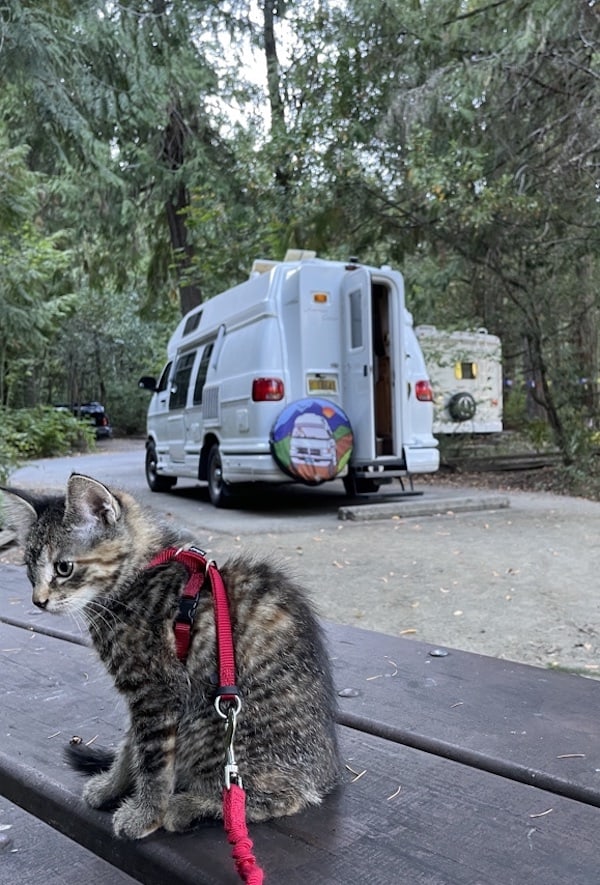Propane Safety for RV travel
Propane can be a great thing to have on board for RV travel. It can power your stove, your heater and your refrigerator. But is propane in an RV safe? How can you ensure that your propane use in your RV is safe?
What is Propane?
Propane is liquefied petroleum gas, often called LP or LPG. It is a fossil fuel that is found naturally alongside natural gas and oil and extracted from natural gas. Propane is nontoxic, colorless and virtually odorless. Propane is actually the cleanest burning fossil fuel.
My Cautionary Propane Story
I’ll never forget the time I was camping in Eastern Oregon on a chilly June morning. I got up to make my coffee and turned the furnace on. It seemed to make a bit of a screeching noise, but then it stopped and sounded normal. After the interior warmed up a bit, I turned it off. I took Olive for a walk, came back and turned the propane heater back on again. That’s when I heard a loud “pop” and shortly thereafter my carbon monoxide detector went off.

I immediately turned the heater off, opened the doors and quickly got me and Olive outside. I didn’t turn the heater on again until after I had an appointment with an RV technician. Turns out, some mud daubers had gotten in and made a nest that was blocking the air flow. I also had a roll of paper towels that had fallen back behind where the heater vented, which could have also been restricting the airflow. Carbon monoxide was getting in my rig and it could have been deadly.
Thank goodness I had a carbon monoxide detector installed. It likely saved my life that day.

Despite this incident, I’m not afraid to use my propane. If I take the proper precautions, it’s just as safe as the gas furnace inside my sticks and bricks home. I love cooking inside my RV. I love a bit of heat on a cool morning. And I especially love that with very little propane, my refrigerator will stay nice and cool when I don’t have shore power to plug into.
I am aware that propane is a flammable liquid and I do take precautions. Here are my tips for RV Propane safety from the Propane Education & Research Council.
Before Travel: Propane Safety
My RV has a propane tank under the carriage. If you have a trailer, you may have cannisters that sit outside your rig. No matter which type you have, here are some steps to take before you head out on the road.
- Have your propane inspected at least once a year to ensure there are no leaks, blockages or corrosion
- Inspect your propane before heading out on a trip. Look for signs of rust, corrosion or wear
- Make sure your carbon monoxide, propane and smoke detectors all work
- If you carry additional propane tanks, make sure they are secured. Never carry propane inside your RV
- Always follow recommendations for your particular RV

Propane Safety On the Road:
- Turn off the propane supply value. Never drive with the propane open. Most refrigerators will keep food cool on travel days, as long as it’s not too hot. Many RV refrigerators will run on DC (your house battery) power while you are driving.
- Make sure all valves are off and any pilot lights turned off when fueling up
- Be sure to follow all safety precautions or warnings when driving through tunnels or other enclosed areas.
Propane Safety at the Campground:
- Always open a window or roof vent or turn on your exhaust fan when cooking with propane inside your rig
- Be sure to park at least 10 feet from grills and firepits or other heat sources
- Do not use your stove for heat inside your vehicle
- Never use a charcoal or propane grill made for outdoor use inside your vehicle as this can lead to fire or carbon monoxide poisoning
Propane Safety in Storage:
- When winterizing your RV, be sure to turn off all propane supply valves and appliances
- If you store your vehicle indoors, remove any portable cylinders and store them upright in a well-ventilated area
Disclosure: This post may contain affiliate links, which means I may get a commission if you decide to make a purchase via my links.







